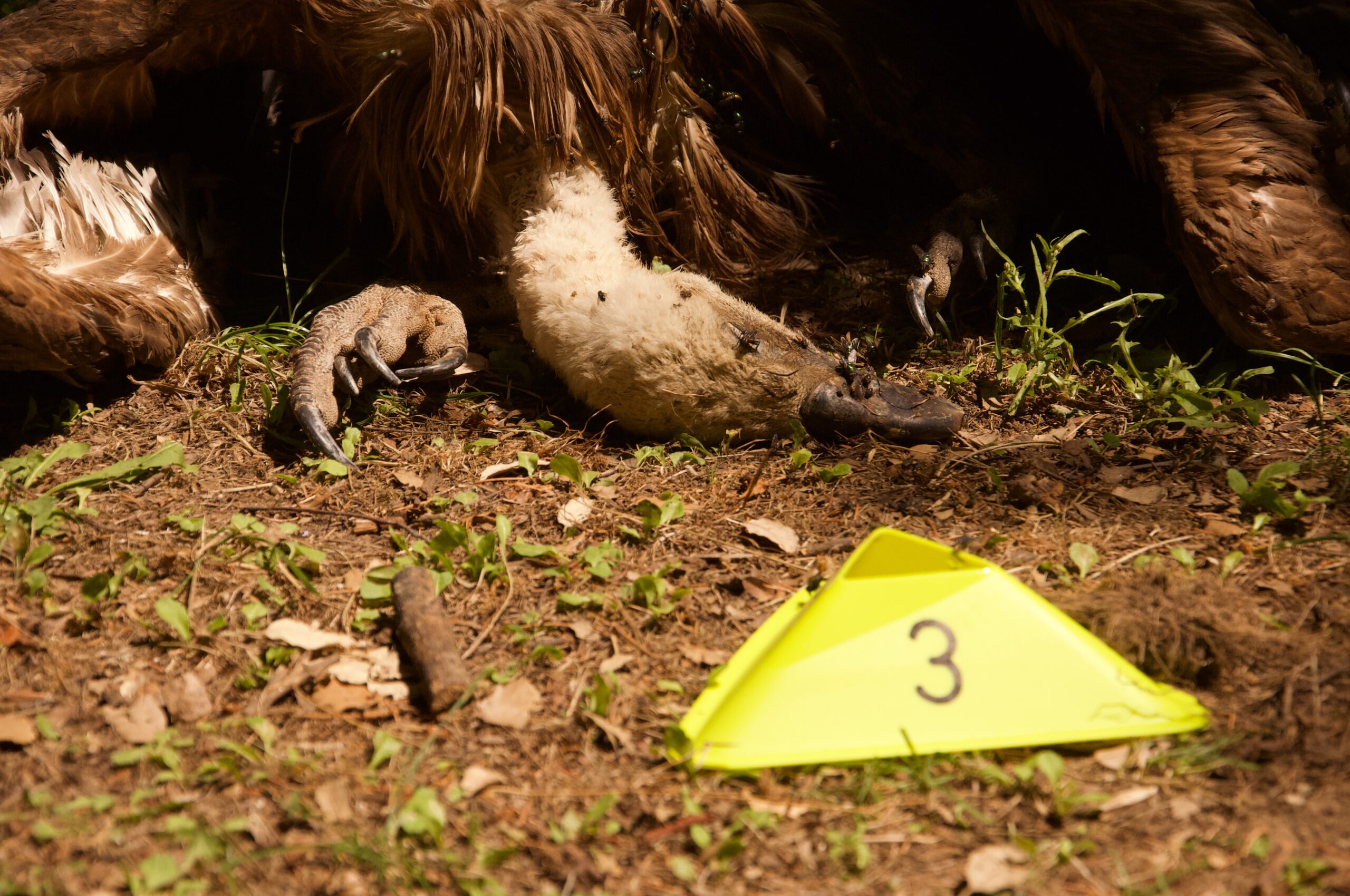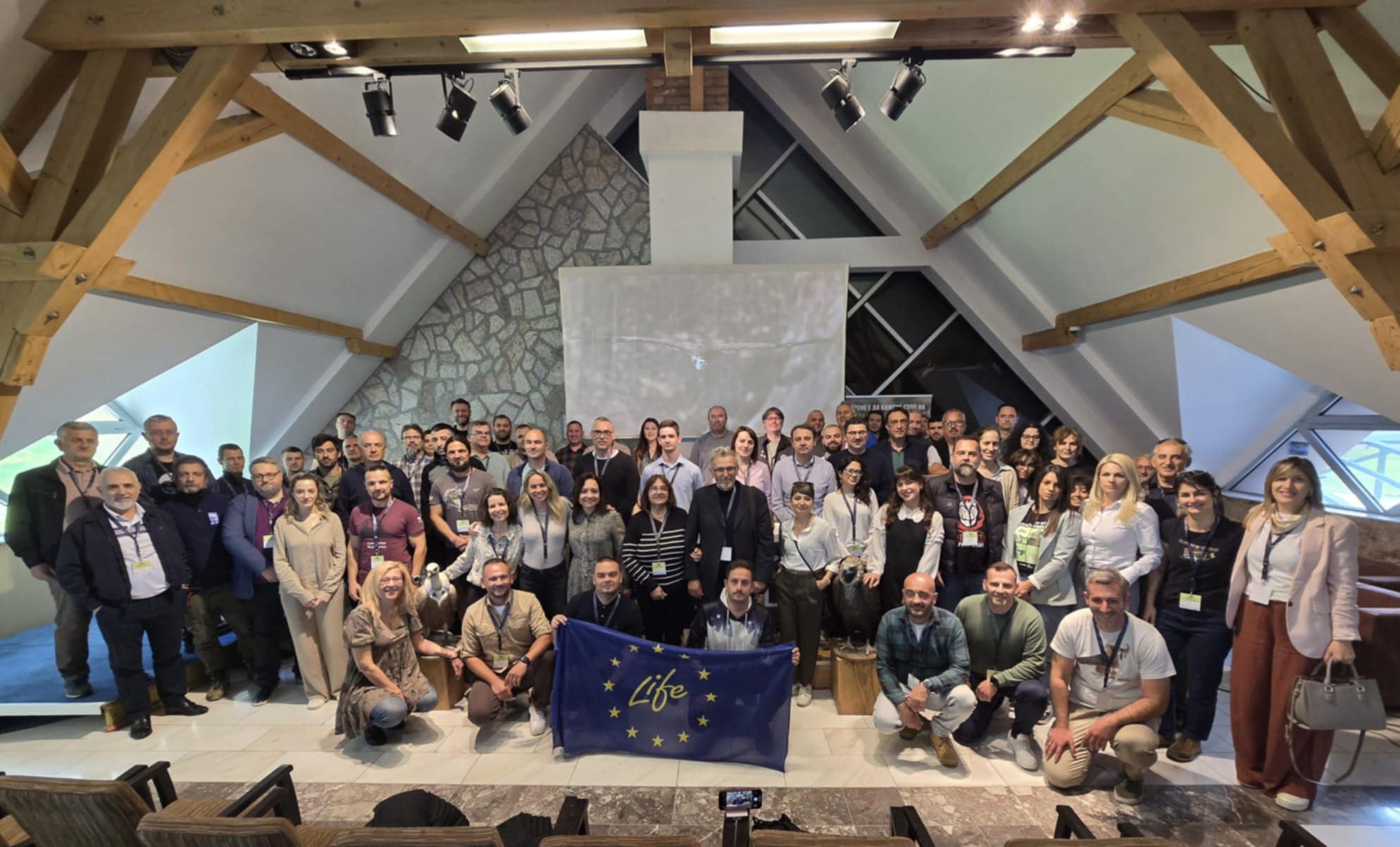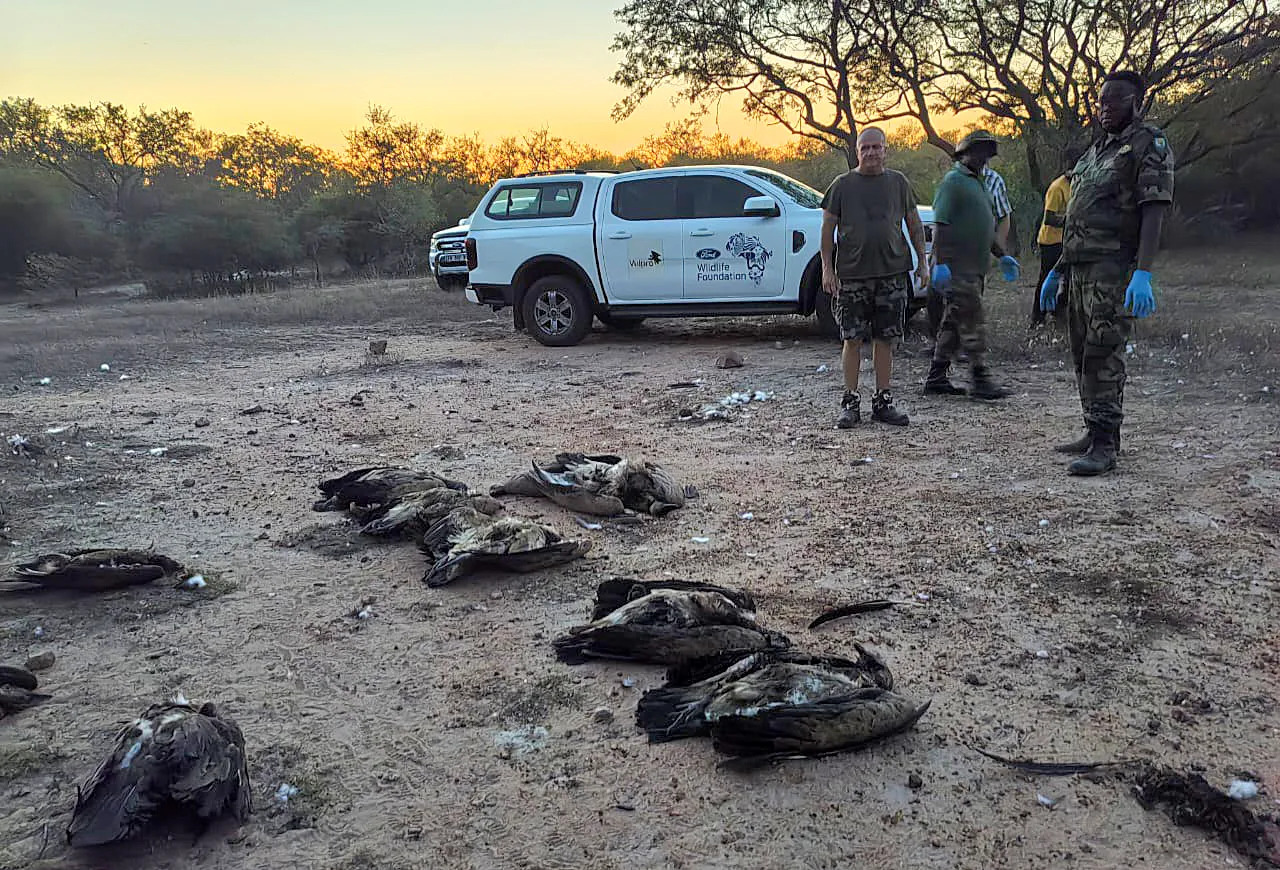
Guinea-Bissau became a vulture graveyard over the past couple of months, with an unprecedented situation killing a minimum of 1,600 Hooded Vultures (Necrosyrtes monachus), and probably many more, and causing a devastating blow to the conservation of a species that is threatened with extinction in Africa. With the political turmoil in the country and the global COVID-19 pandemic, it has been even more difficult and slow to respond accordingly to the circumstances, but local and national authorities and the Vulture Conservation Foundation (VCF), IUCN’s Vulture Specialist Group (VSG) and BirdLife International (BLI) are still working on the case. The Authorities in Guinea-Bissau have been very responsive, and organised two field missions in late March and in April, but further action is necessary to prevent future fatalities.
The escalation of vulture deaths
It all started with the detection of 200 vulture deaths in early February, but the situation gradually escalated, currently reaching 1,603 confirmed fatalities that were mostly concentrated in the Eastern sectors of the country (in Bambadinca, Bafatá and Gabú towns). However, it is impossible to determine the exact numbers, as only a limited area has been thoroughly searched, and many carcasses have probably been missed or rapidly disposed of by the local population once discovered. Therefore, the VCF and colleagues fear that it is likely that deaths amount to over 2000 Critically Endangered Hooded Vultures, as mortality has apparently started in December 2019, and continued throughout March.
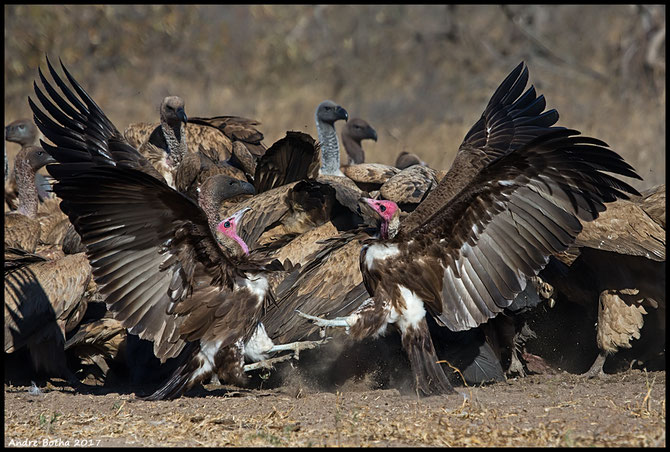
“Guinea-Bissau holds one of the healthiest populations of this African species, with some estimates suggesting the country holds more than a fifth of the continents global population of Hooded Vultures, but events of this scale will have adverse effects on their national but also regional West African population”, said José Tavares, VCF’s director.
Vultures poisoned for belief-based use
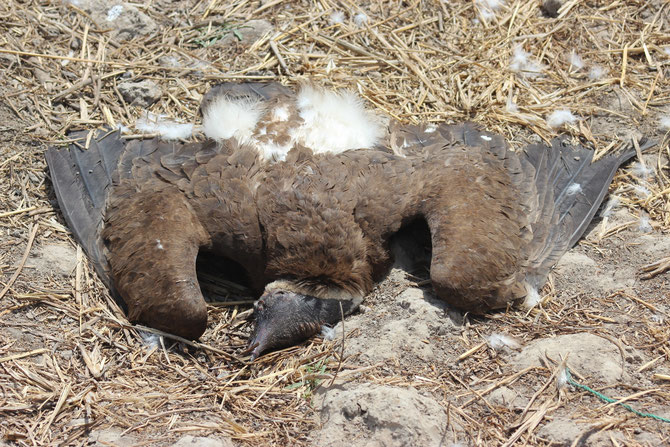
Evidence collected during the field missions organized by the authorities suggests that the vultures have been killed deliberately using poisoned baits. Reports from witnesses corroborate that vultures were poisoned intentionally, using poison baits placed around villages, so that vulture parts could be collected for belief-based use (ritual use), with demand related to the country’s political instability. In some parts of Africa, some communities believe that possession of vulture heads is thought to bring good fortune or even special powers. In Guinea-Bissau at least 200 of the poisoned vultures have been found without their heads. Additionally, there have been reports that high demand for vulture body parts from neighbouring countries may have played a role.
To help confirm the cause of death, vulture carcasses have been collected and sent to Lisbon with one of the last planes that flew out of Guinea-Bissau before the global lock-down imposed by the COVID-19 pandemic and toxicological analysis are now being carried out in Lisbon university.
Update 01/05/2020
The preliminary toxicology results verify that the vultures were deliberately poisoned. The University of Lisbon examined the three Hooded Vulture carcasses we managed to transfer from Guinea-Bissau to Portugal. The necropsy was done, samples for toxicology analysis were collected, and the first analysis determined it was a type of carbamate. Further analysis is now continuing to determine the exact substance used. The VCF and partners are still supporting and working with local authorities to investigate these incidents, put a halt to them and minimise future vulture mortalities.
Mass poisonings in Africa are a common problem
Unfortunately, mass poisonings in Africa are successive and frequent, and have been driving several species of African vultures to extinction. In the past 30 years, some African species have declined by 80%. Seven of Africa’s vulture species are on the edge of extinction, with four species considered Critically Endangered, while three other species are Endangered. This, of course, causes a devastating effect on the population but also the surrounding environment, as vultures are essential for a healthy and functioning ecosystem and poison baits or carcasses killing a lot of other scavenging wildlife.
Poisoning does not only pose a threat to vultures in Africa — but it is a global problem also affecting other wildlife and public health. The Vulture Multi-species Action Plan, co-developed by the Vulture Conservation Foundation, and endorsed by the Convention for Migratory Species, concludes that poison is the biggest threat to vultures worldwide and a significant part of this global action plan for vultures focuses on the actions needed to fight this threat.
The VCF, VSG and BLI support the government of Guinea-Bissau and ask for higher involvement, including the participation of enforcement agencies, to investigate this mortality, and prevent future ones.
“The vulture mortalities have now been partly thwarted due to the investigations and attention brought to the case, but the VCF will continue to monitor and investigate the situation closely, and will continue to press for appropriate actions to be taken”, concluded José Tavares.

